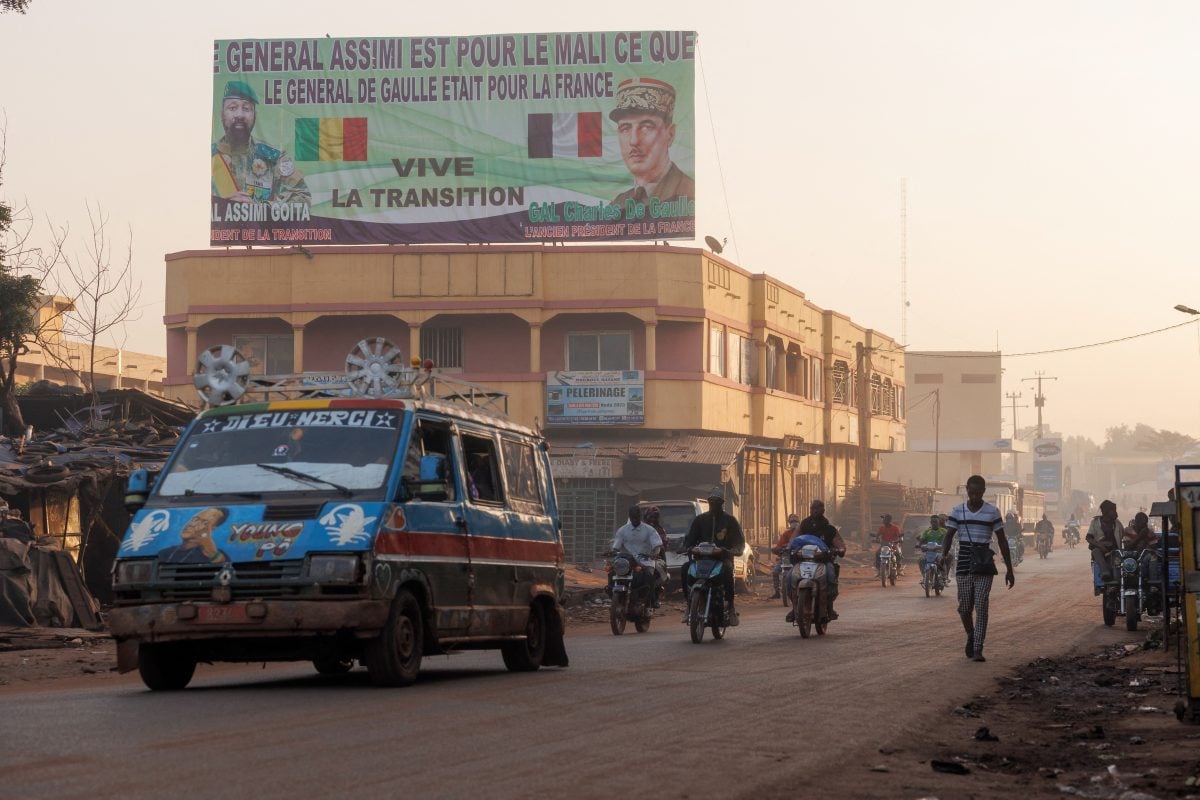Mali, one of the world’s top 20 gold producers and a leading producer in Africa. has long been a gold mining oasis for investors.
But following President Assimi Goïta’s rise to power in a military coup in 2021, the mining sector has become rather more of a mirage in the eyes of foreign capital.
Goita, who has reinvigorated demands for a reclamation of “national sovereignty”, has begun to impose new rules on foreign mining operators.
He called for an audit of the sector soon after coming to office. This claimed to find vast irregularities and concluded that Mali was losing millions annually in unpaid royalties and taxes.
“The audit revealed that multinational corporations operating in the mining sector were practising a lot of base erosion and profit shifting (BEPS) with millions of dollars lost every year,” says Ibrahim Goita (no relation to the president), a legal and tax professional working in the Malian mining sector.
Ibrahim says that mining companies were using tax planning strategies to move their profits to low or no-tax locations, rather than paying taxes in Mali.
The audit set off a chain of events in which President Goïta announced revisions to the country’s mining code.
Bad for business or victory for sovereignty?
Foreign companies complained that the amendments to the code were unworkable. They included a provision that allows the government and Malian private interests to take up to a 35% stake in foreign investments – up from 20% previously. The code also removed tax exemptions for mining companies during operations.
Investors also complained that the code does not provide any certainty over whether it would be applied retrospectively or whether stabilisation clauses will prevent significant disruption to existing operations.
The government said this will depend on an implementation decree, but that has yet to be made public. Operators say that has left them in the dark, unable to plan their operations or invest further in the country.
While the policy shift has spooked foreign companies, some Malians have celebrated the developments as a victory for national sovereignty and a move towards taking control over the country’s natural resources.
“Today people have high hopes that Mali will start benefiting from their mining resources following the government’s recent actions,” says Ibrahim Goita.
Gold accounts for about 80% of Mali’s total exports, yet the economic benefits it brings to the country are limited, with a poverty rate of 45.3% in 2023 according to the African Development Bank.
But it is not yet clear that increased mining revenues accruing to the government and Malian private interests will be distributed among the population – or whether existing inequalities will be exacerbated by the move.
Detention tactics
There has also been significant concern among western investors about the tactics being used to force compliance with the new code.
The CEO and two other employees of Australia’s Resolute Mining were detained in November when visiting Bamoko to hold discussions with mining and tax authorities regarding the company’s business practices.
Resolute Mining ultimately agreed to pay $160m to resolve the tax dispute; days later, the employees were released.
Meanwhile, in late November, four employees of Canada’s Barrick Gold were charged and detained, pending trial, having earlier been arrested in September.
In December, Malian authorities issued an arrest warrant for Barrick Gold CEO Mark Bristow.
In mid-January, the company, which operates the Loulo-Gounkoto gold mining complex, announced the suspension of operations after the Malian government began seizing gold stored at Barrick’s complex. Sources told Reuters that around three metric tons of gold, worth as much as $250m, was moved to a helicopter by Malian soldiers, who took it to an unidentified location.
A local court order held that Barrick owes $5.5bn to the government, but talks between the parties to resolve the issue are reportedly focusing on the government’s demand for $199m in alleged unpaid taxes and compliance with the mining code.
Russian influence
The hostile environment for Western investors has been compared to the warm diplomatic ties that Mali’s junta enjoys with Russia.
President Goïta has held regular conversation with Russian President Vladimir Putin, and Russia has been deepening its involvement in Mali’s mining sector. Troops from the Africa Corps, a mercenary group controlled and managed by the Russian government, reportedly arrived near Intahaka in the Gao region in February 2024 to take control of Mali’s largest artisanal mine.
That came after Africa Corps took over three mines south of Bamako in early 2023. According to reports, the troops stayed for a brief period at the mines before departing.
Some analysts argue that Russia’s growing influence in Mali is partly responsible for the tougher line taken with Western companies.
“By imposing these changes on the sector, the junta is trying to maximise its profit from concessions held by Western organisations. And Russia seems to be playing an important role in advocating for these,” says Byron Cabrol, Sub-Saharan African analyst at Dragonfly Intelligence.
“Africa Corps has been leveraging political and military ties to push for the junta to review or cancel mining permits issued to foreign companies. This is consistent with the tactics the paramilitary group has previously used in the Central African Republic,” he adds.
This is disputed.
“Mining change in Mali has nothing to do with the Russians,” says Ibrahim Goita. “Russia has signed a contract to build a refinery, but I don’t think they have been granted any mining authorisation yet,” he adds.
What now?
Unsurprisingly, insurance premiums for operating in West Africa are soaring.
“The Malian government’s recent methods of enforcing compliance with laws in the mining sector, along with mounting security challenges in the country, have severely heightened operational risks in Mali, threatening to stall future production,” notes Tiffany Wognaih, senior associate at JS Held, a strategic advisory firm.
“Production has dropped from 2022 to 2024, at least in part because of these changes,” says Cabrol.
Yet so far, no companies have withdrawn entirely from Mali as a result of the recent changes.
Indeed, Toronto-listed B2Gold, Allied Gold and Robex Resources, and London-listed lithium developer Kodal Minerals, have completed negotiations under the new mining code, signalling the desire to continue working in the country.
Mali says it has received or been promised more than $635m in additional tax payments from companies.
But the latest incidents “will probably deter further foreign investment in the sector,” says Cabrol.
“An operating environment characterised by arbitrary applications of the mining code and prolonged disputes with majors like Barrick Gold threatens to significantly hamper gold production in the country, likely dampening the Malian mining sector’s medium-term prospects,” notes Wognaih.
Want to continue reading? Subscribe today.
You've read all your free articles for this month! Subscribe now to enjoy full access to our content.
Digital Monthly
£8.00 / month
Receive full unlimited access to our articles, opinions, podcasts and more.
Digital Yearly
£70.00 / year
Our best value offer - save £26 and gain access to all of our digital content for an entire year!

 Sign in with Google
Sign in with Google 



